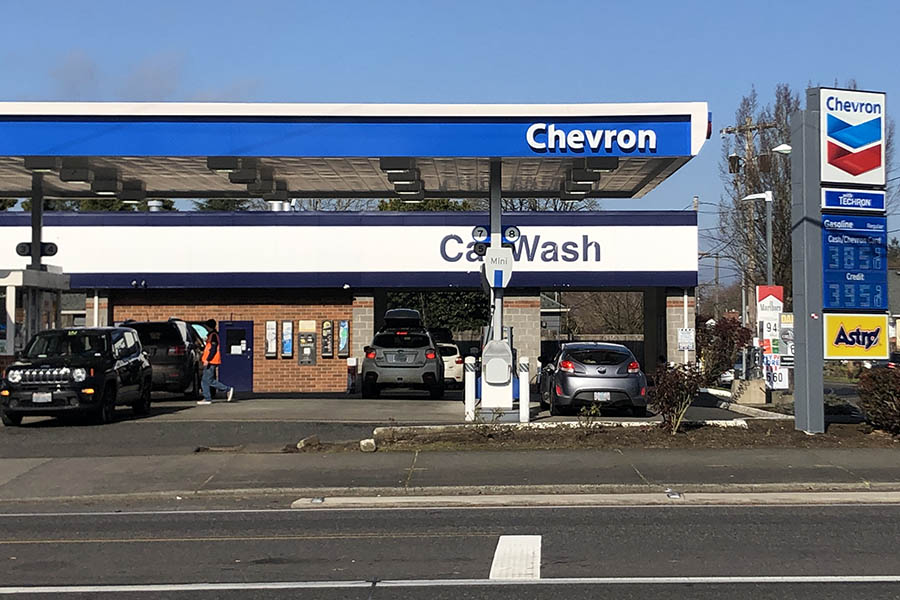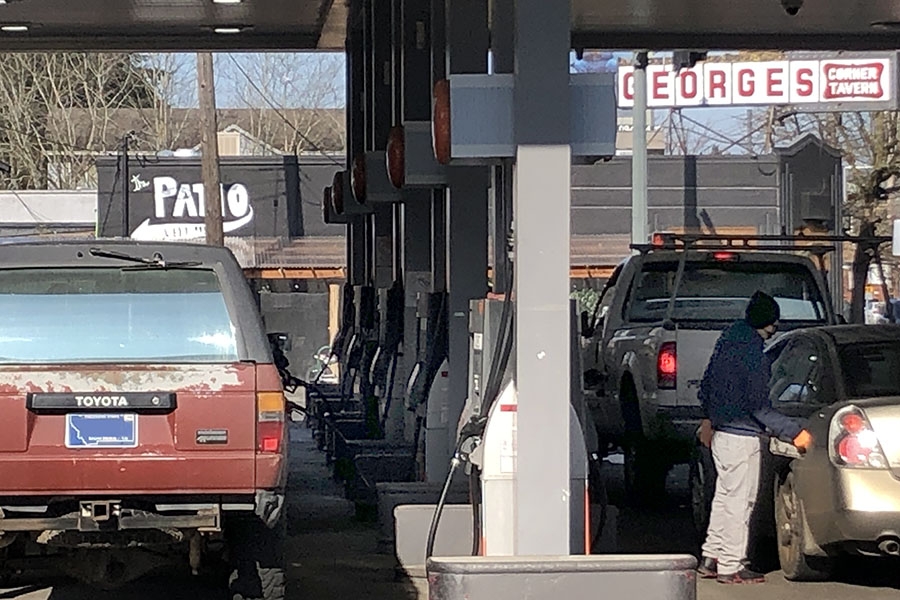HB 4151, which would legalize self-service gas stations statewide, has bipartisan support in congress. But unions and gas station workers are wary.
Proponents of a bill that would let Oregonians pump their own gas say it would provide relief to gas station owners and employees amid an ongoing labor shortage — but detractors say it would reduce the number of working hours for gas station attendants and be a burden for elderly and disabled customers.
“I think this will mean less hours for us,” says Todd Paul, who is 57 and says he has worked at the same Milwaukie gas station for 25 years. “I don’t have a retirement plan so I can’t afford to lose hours. I think it’s pretty good the way it is.”
House Bill 4151’s chief sponsors, house majority leader Rep. Julie Fahey (D-Eugene) and Rep. Shelly Boshart Davis (R-Albany) pitched the bill as providing relief to gas station owners and their employees during Oregon’s ongoing labor shortage, while keeping attendant service for customers who want it. Detractors of the bill say it would reduce hours for gas station attendants, and make pumping gas harder for disabled and elderly Oregonians.

A Chevron at the corner of N. Greeley and N. Rosa Parks Way in Portland. Credit: Joan McGuire.
The bill would require at least 50% of a gas station’s pumps be staffed by an attendant, with fines for business found to be without an attendant on duty. Stations would also have to charge the same amount for attendant and self-service fuel.
At a Tuesday hearing on the bill, Boshart Davis called the bill a “small but critical step” at the hearing, which would provide Oregon consumers with choice and relieve pressure on businesses unable to find help.
Numerous gas station owners testified in support of the bill.
“Our members’ ability to operate normally is no longer an option,” said Gabriel Zirkle, gas station owner and president of the Oregon Fuels Association. “The current situation is not sustainable for the long-term.”
Fahey noted the environmental benefits of having shorter lines at the gas station, which would reduce time spent idling. She described the provisions in the bill as being sufficient to keep attendant service alive for Oregonians who want it.
“This might not be the most important thing we do in this legislative session. It might not even make the top 20,” Fahey said, “But this is a reasonable solution.”
Currently, Oregon is one of only two states in the country with prohibitions on self-service fueling, along with New Jersey. Oregon’s law has been on the books since 1951, with lawmakers arguing at the time that it would prevent higher insurance rates for gas companies and reduce fire hazards.
A 1982 attempt to repeal Oregon’s law failed, but in recent years the state has loosened gas station attendants’ grip on the pump.
Since 2015, self-service fueling has been available in counties where the population is under 40,000. Denser areas have also seen temporary lifts on the ban. In March 2020 the state fire marshal temporarily allowed self-service options for all Oregon gas stations to slow the spread of coronavirus. When the summer heat wave struck in June 2021, the state announced a two-day suspension of the ban.
During the hearing, Sen. Lew Frederick. (D-Portland) noted his concern that elderly and disabled customers would have a more difficult time at the pump, even with the provision. He gave examples of elderly family members in other states for whom pumping gas is a challenge.
Frederick also asked whether or not fueling stations would try to get around the rules and employ fewer attendants.
“I am very cautious about this bill,” Frederick said. “We need to be monitoring this closely.”
Miles Eshaia, a union representative from The United Food and Commercial Workers (UFCW) Local 555, is less subtle in his criticism of HB 4151.
“There is no labor shortage. What we have is a shortage of employers willing to pay a reasonable wage,” he tells OB.
“That this bill has been both pitched as not impacting jobs while at the same time addressing some kind of imaginary labor shortage should be evidence enough that the actual motivation is to see how much work customers are willing to do for free.”
Eshaia recommended amending the bill to require any realized cost savings to be passed on to consumers in order to “see if there’s still the same level of urgency.”
To subscribe to Oregon Business, click here.






